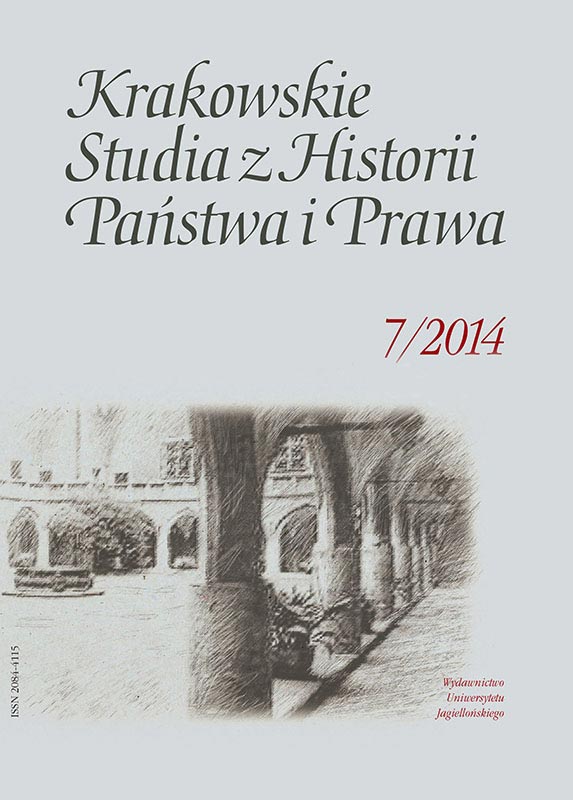Les editions des sources historiques et juridiques en tant que bien culturel national polonais
The Editing of the Sources of Legal History Regarded as the Values of Polish National Culture
Author(s): Wacław Uruszczak, Maciej MikułaSubject(s): Law, Constitution, Jurisprudence, History of Law
Published by: Wydawnictwo Uniwersytetu Jagiellońskiego
Keywords: edition of sources; values of culture; Polish legal history, Statutes of Casimir the Great; Corpus IurisPolonici; the Monuments of Old Polish Law; records
Summary/Abstract: The sources of legal history illustrate the functioning of state structure and the society à trawers les âges. They are doubtless cultural heritage and value. One can view them through prism that is: 1) historical; 2) cognitive; 3) cultural. It is worthwhile to note that a well-prepared edition of the sources of that type facilitates smuggling their cognitive and cultural values. The editing of the sources cannot be replaced by a digitalization of the archives. Of course, the digitalization is needed (since it provides better protection of the archives than the microfilms do, and facilitates the access to the source material). However it cannot replace the function of source editing. The latter, in fact guarantees their the cognitive and cultural aspects of the source material will be brought to light. When edited, the sources material is not only the tool, it turns also into a cultural value. The first Polish editions of sources of legal history were prepared in the 18th century. These were: Volumina Legum (a collection of parliamentary acts), and the edition of international treaties compiled by Maciej Dogiel. The material they contained was still in use in legal practice of the 18th century. In the 19th century the growth of interests in the Poland’s past was stimulative of further editions of sources. They were published in several series. Thus Antoni Zygmunt Helcel established a series Starodawne prawa polskiego pomniki while the Polish Academy of Arts and Sciences printed Archiwum komisji prawniczej. Both series continued publishing the main legal acts and also those illustrative of legal practice from the 13th through 18th centuries. There were also some sources printed beyond the scope of these two series. The efforts of A.Z. Helcel, R. Hube, B. Ulanowski, F. Piekosiński, M. Bobrzyński, S. Kutrzeba and O. Balzer in source exploring were continued after World War II. Those engaged in this work were above all the researchers from Kraków, Warszawa, Poznań. The second series of Starodawne prawa polskiego pomniki was due to the initiative of the Polish Academy of Science, its editor-in-chief being professor Adam Vetulani. Following 1989 it is in the Chair of Polish Legal History at the Jagiellonian University that the task of source editing is continued. It has been for 15 years now that Professor Stanisław Grodziski and his co-workers are engaged in publishing Volumina Constitutionum which is a modern version of the edition of the parliamentary acts of the old-Polish nobiliary Republic. In this millieu it was also Ludwik Łysiak and Karin Nilsen von Stryk who were responsible for publishing the court records illustrative of the cases between 15th through 16th centuries. Professor Wacław Uruszczak and his collaborators were, in their turn, busy editing criminal court records between 16th through 18th centuries.
Journal: Krakowskie Studia z Historii Państwa i Prawa
- Issue Year: 7/2014
- Issue No: 3
- Page Range: 405-417
- Page Count: 13
- Language: French

